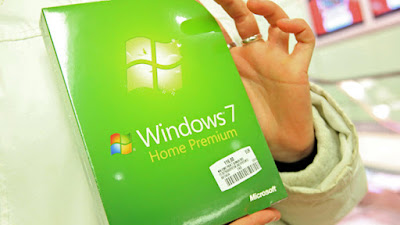Find
out how much longer Windows 7 is safe for your PC.
Windows 7 was one of Microsoft’s best-loved
computing operating systems and most of us are still using it.
But like all operating systems before it,
Windows 7 will eventually reach the end of its life cycle, making an upgrade an
absolutely essential task for the safety of your PC.
When does support for Windows 7 end?
Microsoft ended mainstream support for
Windows 7 on January 13, 2015, but extended support won’t end until January 14,
2020. Find out the difference between Mainstream
and Extended Support. [Read more: [Difference-between-Mainstream-and-extended-support-of-Windows]]
This applies as long as you have Service
Pack 1 installed.
This chart shows where operating systems
from Windows XP up to Windows 10 stand (dates in red indicate an expired support
deadline):
Client Operating
System
|
Latest Update or
Service Pack
|
End of Mainstream
Support
|
End of Extended
Support
|
Windows XP
|
Service
Pack 3
|
April 14,
2009
|
April
8, 2014
|
Windows
Vista
|
Service
Pack 2
|
April 10,
2012
|
April
11, 2017
|
Windows 7
|
Service
Pack 1
|
January 13,
2015
|
January 14,
2020
|
Windows 8
|
Windows
8.1
|
January 9,
2018
|
January 10,
2023
|
Windows 10**
|
Service updates provided every March and September
|
N/A
|
N/A
|
**
Windows 10 saw Microsoft move to the Modern
Lifecycle Policy. This provides continuous service and support to the end of
the product's life, with updates up to twice a year instead of the Service
Packs provided in earlier operating systems.
How long will Windows
7 function?
Microsoft’s 10-year-old operating system still has extended support through
2020.
Once
an operating system enters extended support, it's still very safe to use. It
means that Microsoft will continue to patch any security threats but won't add
any new features (as it would do during the 'mainstream support' phase).
Let
us understand it technically, even after the expiration date is passed Windows
7 can still function until your hardware conks out or your machine gets eaten
by a virus or malware.
Come 2020, there won’t even be
extended support. The problem with no support is that no one is watching out
for that version of Windows anymore. Microsoft isn’t making any promise that your
system is safe or that it will fix old software if someone hacks Windows 7.
The other thing about using an old
operating system is that it was built for older software. Windows 7, after all,
launched in 2009, making it 10 years old this year. As any Windows operating
system ages, it seems to get slower as it’s trying to process today’s technology
or other new software.
This may not be a concern for you
though if you find that Windows 7 works for your needs and you can’t imagine
doing more on your computer than you do today.
Besides, you’ll still get about 1
year!
According to NetMarketShare’s
September 2018 data, 40.88% are still using Windows 7 compared to the 37.44%
who have moved on to the latest operating system.







No comments:
Post a Comment